Gardening in Chester Hill: Your Ultimate Guide to a Thriving Green Space
Introduction to Gardening in Chester Hill
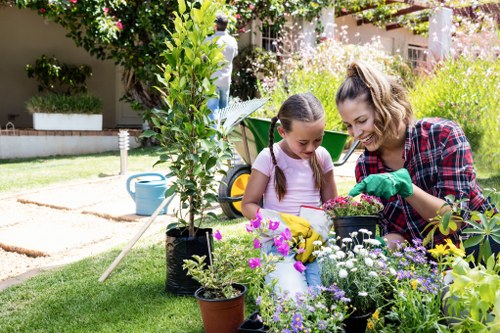
Welcome to the vibrant world of gardening in Chester Hill, where green thumbs thrive and outdoor spaces transform into lush paradises. Whether you're a seasoned gardener or just starting out, Chester Hill offers the perfect environment for cultivating beautiful gardens.
The unique climate and soil conditions in Chester Hill provide an excellent foundation for a diverse range of plants. From stunning flower beds to productive vegetable gardens, the possibilities are endless.
In this guide, we'll explore the essentials of gardening in Chester Hill, including tips for selecting the right plants, maintaining your garden, and making the most of the local resources available.
Understanding Chester Hill's Climate and Soil
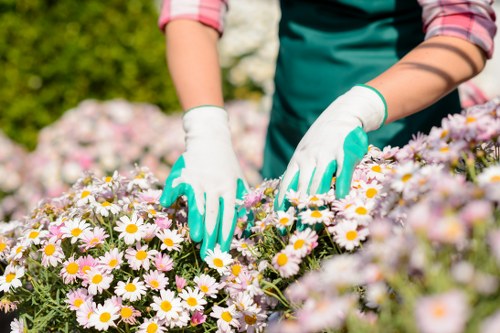
Chester Hill enjoys a temperate climate, characterized by warm summers and mild winters. This climate is ideal for a wide variety of plants, making it easier for gardeners to plan and execute their garden designs.
The soil in Chester Hill tends to be rich in nutrients, but it's essential to test your garden's soil to determine its pH and nutrient levels. This information will help you choose the right amendments to ensure healthy plant growth.
Understanding the local climate and soil is the first step towards creating a successful garden. With the right preparation, you can overcome common gardening challenges and enjoy a flourishing green space year-round.
Choosing the Right Plants for Your Chester Hill Garden
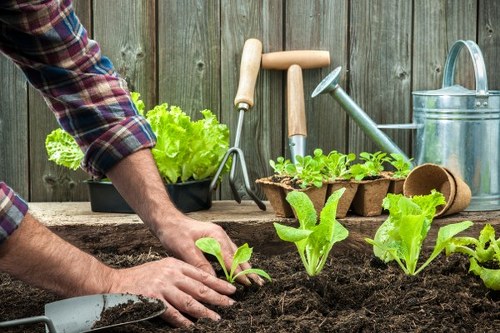
Selecting the appropriate plants is crucial for a thriving garden. In Chester Hill, gardeners can take advantage of a wide variety of native and non-native plants that flourish in the local conditions.
Consider incorporating native plants into your garden design. They are well-adapted to the local climate and soil, requiring less maintenance and water. Additionally, native plants support local wildlife, contributing to the ecosystem's health.
For those looking to add color and variety, annuals and perennials are excellent choices. Annuals provide vibrant blooms throughout the growing season, while perennials offer long-lasting beauty with less upkeep.
Designing Your Garden Layout
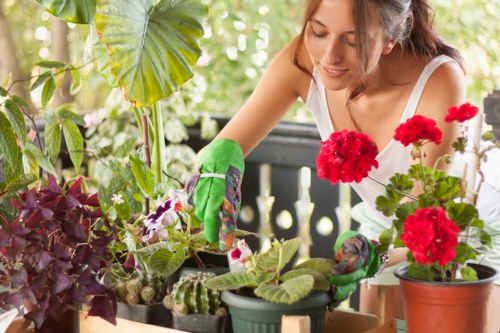
A well-planned garden layout can enhance the beauty and functionality of your outdoor space. Start by assessing the available space and determining the types of plants you want to include.
Consider the following design elements:
- Sunlight exposure
- Soil drainage
- Plant height and spread
- Color coordination
- Pathways and seating areas
By thoughtfully arranging these elements, you can create a harmonious and aesthetically pleasing garden that meets your personal preferences and practical needs.
Essential Gardening Tools and Supplies
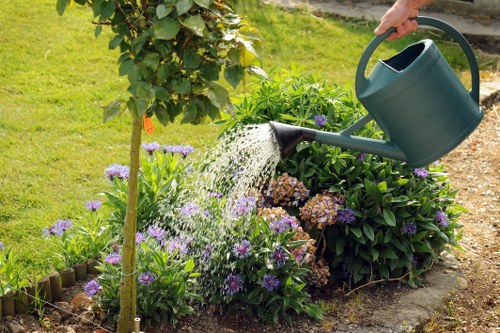
Having the right tools is essential for maintaining a healthy and beautiful garden. Here are some must-have tools for gardening in Chester Hill:
- **Hand Trowel**: Perfect for planting, digging, and transferring plants.
- **Pruning Shears**: Essential for trimming and shaping plants.
- **Garden Fork**: Useful for turning soil and aerating garden beds.
- **Watering Can or Hose**: Ensure your plants receive adequate moisture.
- **Gloves**: Protect your hands from thorns, dirt, and debris.
Investing in quality tools will make gardening tasks easier and more enjoyable, allowing you to focus on nurturing your plants.
Planting Techniques for Success

Proper planting techniques are vital for the health and longevity of your plants. Follow these steps to ensure successful planting:
- Preparation: Clear the planting area of weeds and debris. Loosen the soil to improve aeration.
- Spacing: Follow the recommended spacing guidelines for each plant to prevent overcrowding.
- Depth: Plant seeds or seedlings at the appropriate depth to promote strong root development.
- Watering: Water thoroughly after planting to help settle the soil around the roots.
Adhering to these techniques will promote healthy growth and reduce the risk of plant diseases.
Watering and Irrigation Tips

Water management is a critical aspect of gardening in Chester Hill. Proper watering ensures that your plants receive the right amount of moisture without wasting water.
Here are some tips to optimize your watering routine:
- Early Morning Watering: Watering in the early morning reduces evaporation and allows plants to absorb moisture before the heat of the day.
- Deep Watering: Water deeply to encourage deep root growth, making plants more resilient to drought.
- Mulching: Apply a layer of mulch around your plants to retain soil moisture and suppress weeds.
- Drip Irrigation: Consider installing a drip irrigation system for efficient water delivery directly to the plant roots.
Implementing these strategies will help maintain healthy plants while conserving water resources.
Pest and Disease Management

Protecting your garden from pests and diseases is essential for maintaining plant health. Integrated Pest Management (IPM) is an effective approach that combines various strategies to control pests with minimal environmental impact.
Steps to manage pests and diseases include:
- Monitoring: Regularly inspect your plants for signs of pests or diseases.
- Identification: Accurately identify the pest or disease to choose the appropriate control method.
- Prevention: Implement preventative measures such as crop rotation and the use of resistant plant varieties.
- Control: Use biological controls like beneficial insects or organic pesticides when necessary.
By staying proactive, you can minimize damage and maintain a healthy garden.
Seasonal Gardening Tips

Gardening is a year-round activity, and each season presents unique opportunities and challenges. Adapting your gardening practices to the changing seasons will ensure your garden remains vibrant and productive.
Spring: Time for planting new flowers and vegetables. Prepare your garden beds and start seeds indoors if necessary.
Summer: Focus on maintaining moisture levels and providing adequate shade for sensitive plants.
Autumn: Harvest remaining crops and prepare your garden for winter by adding compost and mulch.
Winter: Protect perennial plants from frost and plan your garden layout for the upcoming year.
Utilizing Local Resources in Chester Hill

Chester Hill offers a wealth of local resources to support your gardening endeavors. From nurseries and garden centers to community gardens and workshops, you'll find plenty of opportunities to enhance your gardening skills.
Visit local nurseries to find a wide selection of plants suited to the Chester Hill climate. Many nurseries offer expert advice and can help you select the best varieties for your garden.
Participate in community gardening projects to connect with fellow gardening enthusiasts. These initiatives provide valuable learning experiences and foster a sense of community.
Additionally, take advantage of gardening workshops and seminars offered by local organizations. These events cover various topics, from organic gardening practices to landscape design.
Sustainable Gardening Practices

Embracing sustainable gardening practices benefits both your garden and the environment. Here are some ways to make your garden more eco-friendly:
- Composting: Recycle kitchen scraps and garden waste to create nutrient-rich compost for your plants.
- Rainwater Harvesting: Collect rainwater to use for irrigation, reducing reliance on municipal water sources.
- Organic Fertilizers: Use natural fertilizers to nourish your plants without harmful chemicals.
- Native Landscaping: Incorporate native plants that require less water and are more resistant to local pests.
Implementing these practices promotes a healthy ecosystem and ensures the longevity of your garden.
Gardening for Health and Well-being

Gardening is not only a fulfilling hobby but also a great way to improve your physical and mental health. Engaging in gardening activities can reduce stress, increase physical activity, and provide a sense of accomplishment.
Physical Benefits: Tasks like digging, planting, and weeding provide a good workout, enhancing strength and flexibility.
Mental Benefits: Spending time in the garden promotes relaxation and mindfulness, helping to alleviate anxiety and depression.
Nutritional Benefits: Growing your own vegetables and herbs ensures access to fresh, organic produce, contributing to a healthy diet.
By dedicating time to your garden, you invest in your overall well-being and create a peaceful retreat in your backyard.
10-15 Nearby Areas to Chester Hill for Gardening Services

Chester Hill is surrounded by numerous areas that also boast excellent gardening opportunities and services. Here are 15 nearby areas to consider for your gardening needs:
- Bankstown: Just a short drive away, Bankstown offers a variety of nurseries and garden centers.
- Birrong: Known for its community gardens and green spaces, Birrong is perfect for collaborative gardening projects.
- Chester Hill South: Similar to Chester Hill, this area provides additional gardening resources and services.
- Punchbowl: Offers diverse plant selections and expert gardening advice.
- Concord: Home to several botanical gardens and educational gardening programs.
- Homebush: Features large garden centers and landscape design services.
- Enmore: Known for its trendy urban gardens and sustainable gardening initiatives.
- Greenacre: Offers a range of gardening tools and supplies from local retailers.
- Hurlstone Park: Ideal for those seeking serene garden environments and relaxation spaces.
- Liberty Grove: Provides excellent soil suppliers and composting facilities.
- Yagoona: Features community-driven gardening projects and educational workshops.
- Bethungra: Known for its ornamental plant varieties and decorative garden elements.
- Guildford: Offers comprehensive landscaping services and garden maintenance programs.
- Regentville: Home to historic gardens and traditional gardening practices.
- Mount Lewis: Provides specialized gardening services, including vertical gardening and rooftop gardens.
Exploring these nearby areas can provide additional resources and inspiration for your gardening projects in Chester Hill.
Maintaining Your Chester Hill Garden

Regular maintenance is key to preserving the health and beauty of your garden. Here are some essential maintenance tasks for gardening in Chester Hill:
- Weeding: Remove weeds regularly to prevent them from competing with your plants for nutrients and water.
- Pruning: Trim overgrown branches and dead foliage to encourage healthy growth and improve plant shape.
- Mulching: Apply mulch to retain soil moisture and regulate temperature.
- Fertilizing: Provide your plants with necessary nutrients through regular fertilization.
- Pest Control: Monitor for pests and take appropriate measures to control infestations.
Consistent maintenance ensures that your garden remains vibrant and resilient throughout the year.
Enhancing Your Garden with Decor and Accessories

Adding decorative elements and accessories can elevate the aesthetic appeal of your garden. Consider the following enhancements:
- Garden Sculptures: Introduce artistic pieces to add visual interest and personality.
- Water Features: Install fountains or ponds to create a soothing atmosphere.
- Lighting: Use solar-powered lights to highlight key areas and extend your garden enjoyment into the evening.
- Seating Areas: Incorporate benches or garden furniture for relaxation and social gatherings.
- Pathways: Design winding paths with stepping stones or gravel to guide visitors through your garden.
These additions not only enhance the beauty of your garden but also provide functional spaces for enjoyment and relaxation.
Organic Gardening Practices

Adopting organic gardening practices ensures a healthy and sustainable garden ecosystem. Here are some tips for organic gardening in Chester Hill:
- Natural Fertilizers: Use compost, manure, and other organic materials to nourish your plants.
- Biological Pest Control: Introduce beneficial insects like ladybugs and praying mantises to manage pest populations.
- Crop Rotation: Rotate plant families each season to prevent soil depletion and reduce disease risk.
- Companion Planting: Grow complementary plants together to enhance growth and deter pests.
- Non-Toxic Weed Control: Utilize mulching and manual weeding instead of chemical herbicides.
By embracing these organic methods, you can cultivate a thriving garden that is both environmentally friendly and bountiful.
Composting: Turning Waste into Gold

Composting is a sustainable practice that transforms kitchen scraps and garden waste into nutrient-rich soil amendments. Here's how to start composting in Chester Hill:
- Choose a Composting Method: Decide between a compost bin, pile, or tumbler based on your available space and preferences.
- Gather Materials: Collect green materials (fruit and vegetable scraps, grass clippings) and brown materials (leaves, straw, paper).
- Maintain Balance: Aim for a balance of carbon-rich and nitrogen-rich materials to facilitate decomposition.
- Turn Regularly: Aerate the compost by turning it every few weeks to speed up the process.
- Harvest Compost: After several months, use the finished compost to enrich your garden soil.
Composting not only reduces household waste but also provides your plants with essential nutrients, promoting healthy growth.
Creating a Wildlife-Friendly Garden

A wildlife-friendly garden supports local biodiversity and creates a balanced ecosystem. Here are ways to make your garden more inviting to beneficial wildlife:
- Provide Water Sources: Install birdbaths or small ponds to offer drinking and bathing places for birds and insects.
- Plant Diversity: Grow a variety of plants to attract different species of birds, butterflies, and bees.
- Build Habitats: Create shelters using logs, rocks, and other natural materials to provide nesting sites.
- Avoid Pesticides: Limit the use of chemical pesticides to protect beneficial insects and pollinators.
- Offer Food: Plant flowering plants that produce nectar and seeds to feed wildlife.
By fostering a wildlife-friendly environment, you enhance the natural beauty of your garden and contribute to the health of local ecosystems.
Gardening with Children

Engaging children in gardening activities can be both educational and fun. Here are some tips for gardening in Chester Hill with kids:
- Start Small: Begin with easy-to-grow plants like sunflowers or cherry tomatoes that provide quick results.
- Assign Responsibilities: Give children specific tasks such as watering, weeding, or harvesting to foster a sense of ownership.
- Use Child-Sized Tools: Provide tools that are appropriately sized for children to ensure safety and ease of use.
- Teach Patience: Gardening teaches valuable lessons about patience and the rewards of nurturing growth.
- Create Fun Spaces: Designate areas for children to decorate with colorful pots, fairy houses, or garden art.
Involving children in gardening activities promotes a lifelong appreciation for nature and healthy living.
Vertical Gardening for Limited Spaces

If you have limited space in your Chester Hill garden, vertical gardening is an excellent solution to maximize your growing area. Here’s how to get started:
- Choose the Right Plants: Select plants that naturally grow upwards, such as tomatoes, herbs, and climbing flowers.
- Use Vertical Structures: Install trellises, vertical planters, or wall-mounted pots to support plant growth.
- Optimize Sunlight: Ensure that vertical garden setups receive adequate sunlight for optimal plant health.
- Maintain Proper Watering: Use drip irrigation or self-watering systems to keep vertical gardens well-hydrated.
- Regular Pruning: Trim and manage plant growth to prevent overcrowding and promote airflow.
Vertical gardening not only saves space but also adds aesthetic interest and allows for creative plant arrangements in your garden.
Herb Gardening in Chester Hill

Herb gardens are a fantastic addition to any Chester Hill garden, providing fresh ingredients for culinary delights and aromatic scents. Here’s how to create a thriving herb garden:
- Select Suitable Herbs: Choose herbs that thrive in Chester Hill's climate, such as basil, rosemary, thyme, and mint.
- Proper Planting: Plant herbs in well-drained soil with adequate sunlight to ensure robust growth.
- Regular Harvesting: Harvest herbs frequently to encourage new growth and prevent overgrowth.
- Companion Planting: Plant herbs alongside vegetables to deter pests and enhance growth.
- Maintenance: Prune and trim herbs regularly to maintain their shape and productivity.
An herb garden not only enhances your cooking but also contributes to the overall beauty and functionality of your garden space.
Edible Landscaping: Combining Beauty and Function

Edible landscaping integrates fruit-bearing and vegetable-producing plants into your garden's aesthetic design. This approach allows you to enjoy beautiful surroundings while harvesting fresh produce.
Benefits of edible landscaping include:
- Dual Purpose: Combines ornamental and functional plants, maximizing the use of garden space.
- Fresh Produce: Provides easy access to fresh fruits, vegetables, and herbs for daily use.
- Environmental Impact: Promotes biodiversity and supports pollinators.
- Cost-Effective: Reduces grocery bills by growing your own food.
- Educational: Offers opportunities to learn about plant growth and sustainable practices.
By incorporating edible plants into your garden design, you create a harmonious balance between beauty and utility.
Creating a Low-Maintenance Garden

A low-maintenance garden is ideal for those with busy schedules or limited gardening experience. Here are strategies to simplify your gardening in Chester Hill:
- Choose Hardy Plants: Select plants that are drought-tolerant and resistant to common pests.
- Mulch Heavily: Mulching reduces weed growth and retains soil moisture, decreasing the need for frequent watering.
- Automate Irrigation: Install drip irrigation or timers to manage watering efficiently.
- Simplify Design: Opt for a cohesive color palette and plant grouping to reduce upkeep complexity.
- Regular Pruning: Conduct periodic pruning to maintain plant health and garden appearance with minimal effort.
Implementing these techniques ensures your garden remains attractive and healthy without requiring constant attention.
Gardening on a Budget

Creating and maintaining a beautiful garden doesn't have to break the bank. Here are some tips for gardening in Chester Hill on a budget:
- Start Small: Begin with a few plants and expand gradually as your budget allows.
- Use Seeds: Growing plants from seeds is more cost-effective than purchasing mature plants.
- Repurpose Containers: Utilize recycled containers like old buckets, pots, or barrels for planting.
- DIY Composting: Create your own compost to reduce the need for commercial fertilizers.
- Trade or Swap Plants: Exchange plants or cuttings with neighbors to diversify your garden without spending money.
By being resourceful and strategic, you can cultivate a thriving garden without exceeding your financial limits.
Maximizing Garden Space with Raised Beds

Raised beds are an excellent solution for maximizing space and improving soil conditions in your Chester Hill garden. Here’s how to effectively use raised beds:
- Construction: Build raised beds using materials like wood, stone, or metal to suit your garden's aesthetic.
- Soil Quality: Fill raised beds with high-quality soil mix to provide optimal conditions for plant growth.
- Plant Selection: Choose plants that are well-suited to the contained environment of raised beds.
- Accessibility: Raised beds are easier to manage, reducing the need for bending and making gardening more comfortable.
- Drainage: Ensure proper drainage to prevent waterlogging and root diseases.
Incorporating raised beds into your garden design enhances both functionality and visual appeal, allowing for organized and productive planting areas.
Winterizing Your Garden

Preparing your garden for winter is essential to protect your plants and ensure a healthy start in the spring. Here are steps to winterize your Chester Hill garden:
- Clean Up: Remove dead plants, fallen leaves, and debris to prevent disease and pests.
- Mulch: Apply a layer of mulch to insulate plant roots and retain soil moisture.
- Protect Sensitive Plants: Cover tender plants with frost blankets or move potted plants indoors.
- Prune Trees and Shrubs: Trim back overgrown branches to reduce the risk of damage from snow and ice.
- Store Tools: Clean and store gardening tools properly to prolong their lifespan.
These measures help safeguard your garden during the colder months, ensuring it remains healthy and ready for the next growing season.
Conclusion: Embrace the Joy of Gardening in Chester Hill

Gardening in Chester Hill is a rewarding endeavor that brings beauty, tranquility, and a sense of accomplishment. By understanding the local climate and soil, selecting the right plants, and implementing effective gardening practices, you can create a thriving garden that enhances your outdoor living space.
Whether you're aiming for a colorful flower garden, a productive vegetable patch, or a serene landscape, Chester Hill provides the perfect backdrop for your gardening journey. Embrace sustainable practices, utilize local resources, and enjoy the myriad benefits that come with nurturing your own green space.
Contact us today to get started on your gardening adventure or book your service now to transform your Chester Hill garden into a lush, vibrant oasis.
